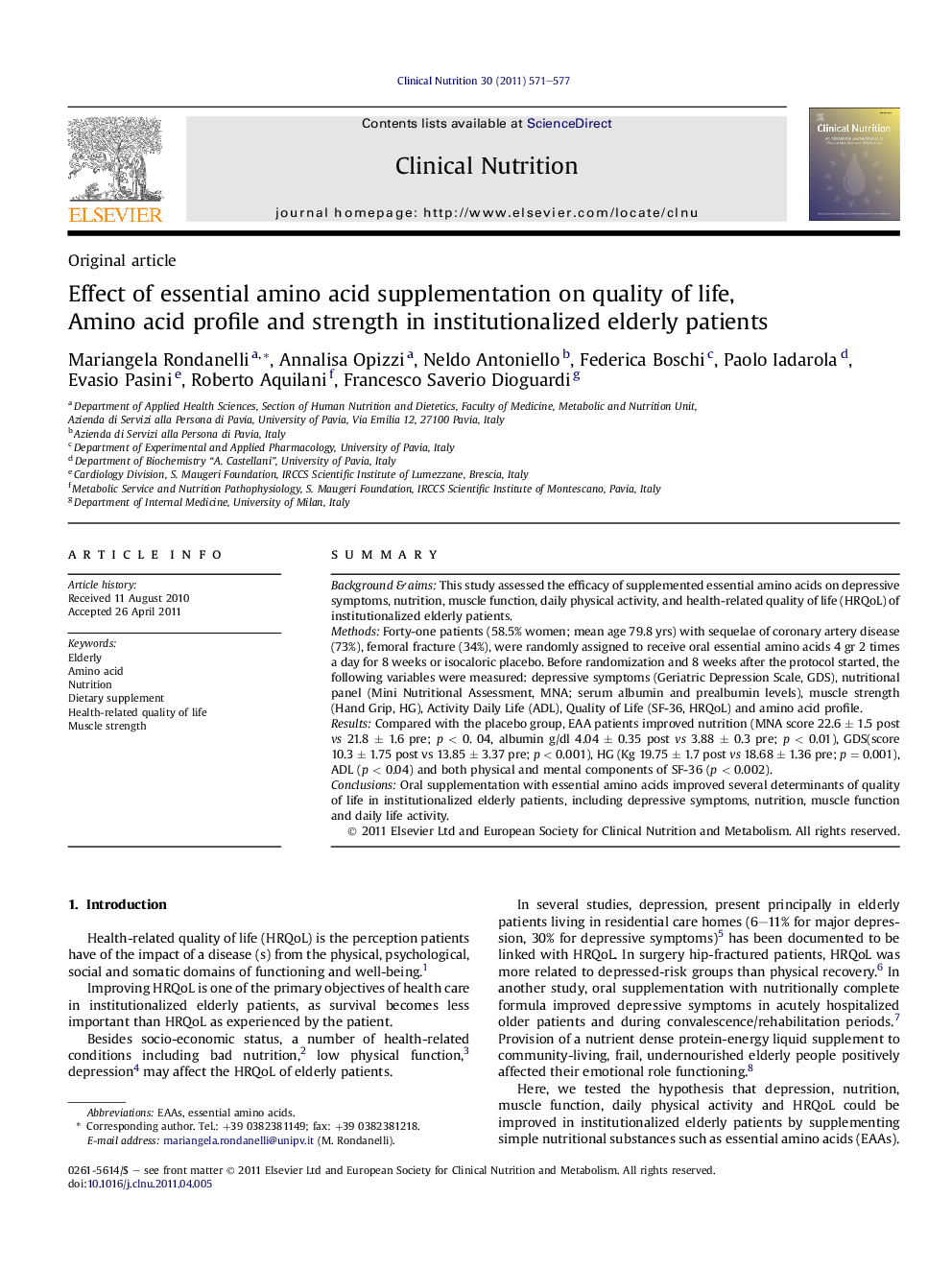| Article ID | Journal | Published Year | Pages | File Type |
|---|---|---|---|---|
| 5871580 | Clinical Nutrition | 2011 | 7 Pages |
SummaryBackground & aimsThis study assessed the efficacy of supplemented essential amino acids on depressive symptoms, nutrition, muscle function, daily physical activity, and health-related quality of life (HRQoL) of institutionalized elderly patients.MethodsForty-one patients (58.5% women; mean age 79.8 yrs) with sequelae of coronary artery disease (73%), femoral fracture (34%), were randomly assigned to receive oral essential amino acids 4 gr 2 times a day for 8 weeks or isocaloric placebo. Before randomization and 8 weeks after the protocol started, the following variables were measured: depressive symptoms (Geriatric Depression Scale, GDS), nutritional panel (Mini Nutritional Assessment, MNA; serum albumin and prealbumin levels), muscle strength (Hand Grip, HG), Activity Daily Life (ADL), Quality of Life (SF-36, HRQoL) and amino acid profile.ResultsCompared with the placebo group, EAA patients improved nutrition (MNA score 22.6 ± 1.5 post vs 21.8 ± 1.6 pre; p < 0. 04, albumin g/dl 4.04 ± 0.35 post vs 3.88 ± 0.3 pre; p < 0.01), GDS(score 10.3 ± 1.75 post vs 13.85 ± 3.37 pre; p < 0.001), HG (Kg 19.75 ± 1.7 post vs 18.68 ± 1.36 pre; p = 0.001), ADL (p < 0.04) and both physical and mental components of SF-36 (p < 0.002).ConclusionsOral supplementation with essential amino acids improved several determinants of quality of life in institutionalized elderly patients, including depressive symptoms, nutrition, muscle function and daily life activity.
